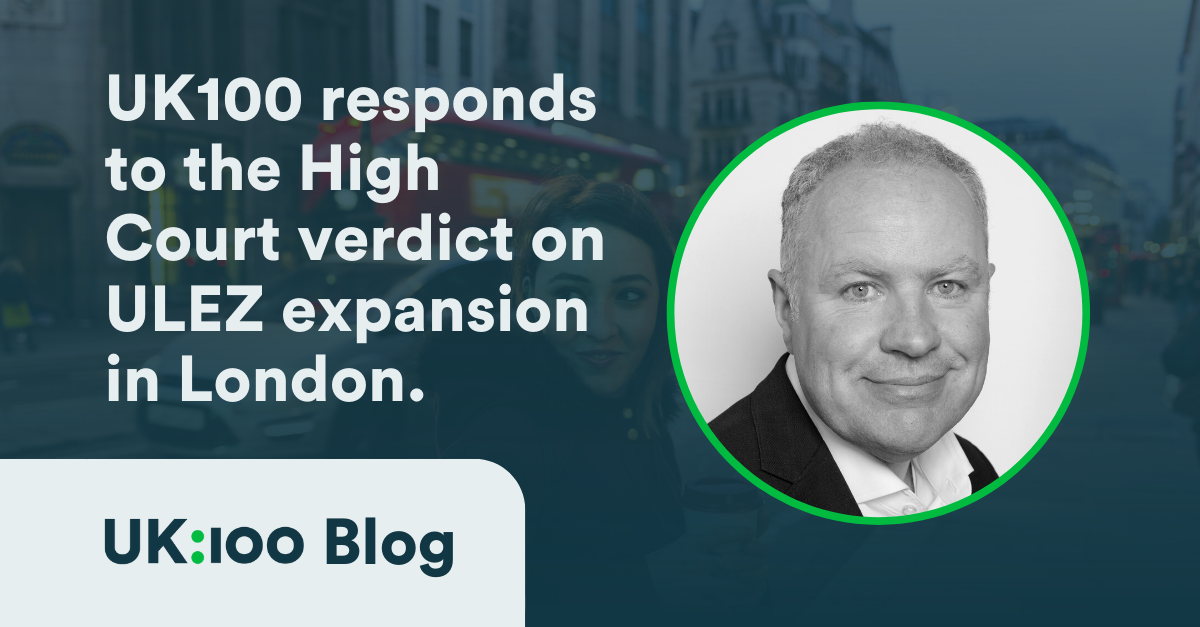
London's Ultra Low Emission Zone (ULEZ), a policy designed by a Conservative mayor and developed by a Labour one in collaboration with a Conservative government, should be a testament to what we can achieve when we put aside political differences for the benefit of people and the planet. As it is in the West Midlands, where the Conservative mayor supported Birmingham’s Labour-led council in introducing an ambitious clean air zone. However, the legal challenge in London is a reminder that delivering clean air is complex and must be done fairly.
As we reflect on this ruling, therefore, we must consider the broader implications of our clean air and Net Zero policies and, above all else, fairness. Recent studies have shown that the quality of air we breathe in the UK all too often depends on race and income. With those least responsible for contributing to the public health crisis hit hardest by it. This underscores the need for our fight for clean air to embed fairness at its heart in current and future policies.
In response to the High Court decision, and despite a fraught political environment, The Mayor of London, Sadiq Khan, has rightly avoided triumphalism and instead taken the decision to expand the scrappage scheme as a positive step towards addressing these disparities. The scrappage scheme has been the focus of repeated requests for UK Government support to partner with the Mayor of London. Despite UK Government support for scrappage schemes outside of London, no UK Government support has been forthcoming for London.
We must always be careful to ensure urgent and necessary measures for cleaning up the dirty air in our towns and cities do not disproportionately impact the most vulnerable among us. Fairness must be our watchword. That is why we are reiterating our call on the government to follow Sadiq Khan's lead and provide adequate support to further enhance a scrappage scheme that is targeted at supporting the most vulnerable among the one in ten car owners not already compliant with the clean air zone.
It's not only in financial support where we need to embed fairness but also in our efforts to raise awareness and provide information about the risks of air pollution and the benefits of cleaner air.
We must never forget that dirty air causes the equivalent of up to 40,000 early deaths every year in the UK, almost twice as many as can be attributed to alcohol consumption.
Whether we live in the inner city or rural outskirts, in a flat or a bungalow, we all deserve to breathe clean air. But achieving this is not just about implementing policies. It's also about ensuring that these policies are designed and implemented in a way that is fair and just.
This means listening to the concerns of all communities, especially those who are most affected. It means providing support to those who need it most. And it means working together, across political lines and geographical boundaries, to create a future where everyone can breathe clean air.
Last week’s ruling takes us further down the road on our journey to cleaning up our dirty air, but our work is far from over. We must continue to advocate for joined Clean Air Net Zero policies that are not only effective but also fair. We must continue to work together to ensure a just transition. And we must continue to fight for a future where everyone, regardless of where they live or how much they earn, can breathe clean air.
Because being able to breathe clean air is not a luxury. It's a right.


